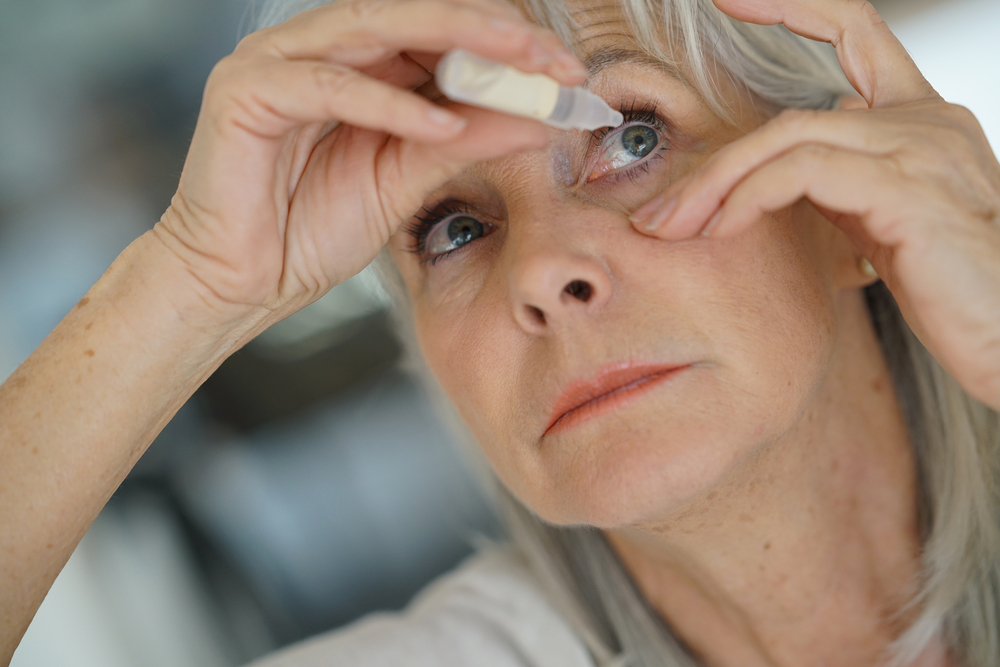Important Facts about Dry Eyes
Dry eyes is a common chronic issue that affects about 48% citizens aged over 18 and visit the optical specialist doctor due to lack of moisture and sufficient lubrication on the eye’s surface. What starts as trivial and constant irritation on the eye’s surface, can ultimately lead to chronic and severe inflammation as well as front surface scarring of the eyes. Among the people suffering from this issue, a significant percentage of them are aged over 40 and as a matter of fact, the gender ratio shows that the number of female affected from this is two times than that of men.

What are the causes of dry eyes?
Aging and menopause are some of the most common causes of this syndrome. A good many people also quit contact lenses as these can create discomfort and dryness from prolonged use. While air conditioning, air heating and ceiling fans in the indoor environment reduce humidity to cause dryness in eyes, the outdoor environmental conditions like windy or dry conditions and aridness increase the risk of dry eyes.
Apart from smoking and intake of antihistamines, blood pressure medicines, contraceptive pills and antidepressants, certain health conditions like thyroid, rheumatoid arthritis, diabetes, and Sjogren’s syndrome can cause dry eyes.
What are the symptoms of dry eyes?
Dry eyes affect both the eyes generally and the most common signs are the eyes getting itchy and gritty with excessive dryness, burning sensation, and inflammation. Often the redness in eyes is misdiagnosed as conjunctivitis and is left untreated which can often lead to sensitivity towards the light, filmy feeling, and blurred vision. In low humid environments, dry and windy weathers, high temperature, the symptoms deteriorate.
Sometimes the symptoms are seen during the day’s end and also after prolonged exposure in front of the digital screen like that of computer, TV, and mobile or after reading and driving for a long time without fluttering the eyelids. Reflex tearing is another prevalent symptom of dry eyes. Other symptoms include –
- Formation of stringy mucus around the surface or in the eyes.
- Difficulty during driving at night.
- Fatigue of eyes.
- Difficulty in wearing contact lenses for a long time.
- Sensitivity to wind or smoke.
- Having a dual vision.
- The stickiness of eyelids while waking up.
- Shooting pain in the eyes often leading to anxiety, frustration, and problem in doing daily tasks.
What are the treatments for dry eyes?
The treatment for dry eyes starts after making a proper diagnosis with the comprehensive eye test, analyzing the quality of tears and measuring the volume of tears. The doctor can also check the tear stability time, the sign of inflammation in eyelids and damage of conjunctiva and cornea while also examining the openings of Meibomian glands. The common treatments include the following. However, it is advisable to consult a doctor before undergoing any of the treatments.
- Artificial tears or eye drops to treat mild dryness of eyes.
- Steroid eye drops as short-term anti-inflammatory treatment.
- Punctal plugs inserted into the opening of tear ducts to stop tear evaporation.
- Meibomian gland expression and warm compression to remove clogging of the Meibomian glands.
- Pulsed light treatment to treat inflammation of blood vessels
Besides, some of the home remedies like having vitamin A and omega-3 rich food, removing eye makeup safely and thoroughly, using quality sunglasses, blinking often and cleaning eyelids properly can help to treat the syndrome. Tear-stimulating medications, using compatible contact lenses, taking a break from watching the digital screen for a long time and avoiding dry and smoky weather are proved to be helpful.


